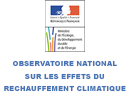From international economic scenarios to the assessment of the sectoral and macroeconomic costs of the reduction of greenhouse gas emissions
From international economic scenarios to the assessment of the sectoral and macroeconomic costs of the reduction of greenhouse gas emissions
International negotiations on climate change control must be able to draw on ex ante assessments of the costs of greenhouse gas emissions reduction programmes.
At the international level and in France, several tools have been designed in recent years to help develop consistent approaches to the analysis of reduction costs: energy models (NEMS, MARKAL, PRIMES, POLES, etc.) and general equilibrium models (SGM, EPPA, GEM-E3, IMACLIM, etc.).
However, few studies have to this day attempted to both separately and jointly assess sectoral reduction costs (such as in the energy sector) – which include a high proportion of technological alternatives – and the costs to the overall economy of implemented policies according to the various instruments used (taxes, emissions permits, etc.).
This research project aims in particular to provide consistent evaluations of the ‘crude costs’ and ‘net costs’ of reduction in different parts of the world, taking into account all greenhouse gases.
This objective will be achieved through the combined and joint use of the international energy model POLES, of IEPE, and the computational general equilibrium model IMACLIM, of CIRED, on the basis of international macroeconomic scenarios especially developed by CEPII for this project.
The contribution of IPTS will help speed up the complete disaggregation of the POLES model into the fifteen EU States. From this process will be deduced complete and consistent evaluations of the marginal costs and total costs of reduction, as well as effort rates per region. This research will also enable us to gauge the impact of the various flexibility configurations set up at the international level to support reduction objectives for 2010 and 2030.
The macroeconomic impacts of the various application modes of the economic instruments used to implement anti-climate change policies will be analysed. The findings will be set out in a final report including:
- the macroeconomic scenarios and their impacts;
- the international reduction strategies and their cost;
- the instrument options and the economic issues at stake in France.
| Coordinators |
Patrick Criqui, CNRS – IEPE |
| Partnership |
CEPII – CIREM |
| Funding |
MEDD
|
| Budget |
122 715.29 € (including tax)
|




